Helping Haitians learn how to improve their own food supply through effective agricultural practices.
As part of the Agricultural Training Center, the Edible Plant Nursery promotes plant selection and propagation, along with other growing methods to improve the quality and size of yields, as well as extend harvest seasons.
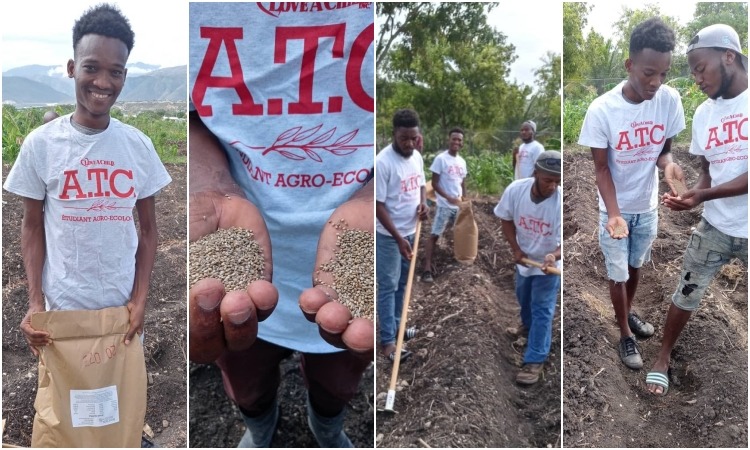
Like all sustainability outreach projects from Love A Child, the Edible Plant Nursery empowers Haitians to help themselves through teaching and demonstration.
Through our regional Seed Depot, in partnership with Hope Seeds, we have already blessed Haitian farmers and gardeners with over 100,000 packets of quality seeds. We are also making plants available from our nursery for families’ home gardens, as well as large-scale reforestation projects.
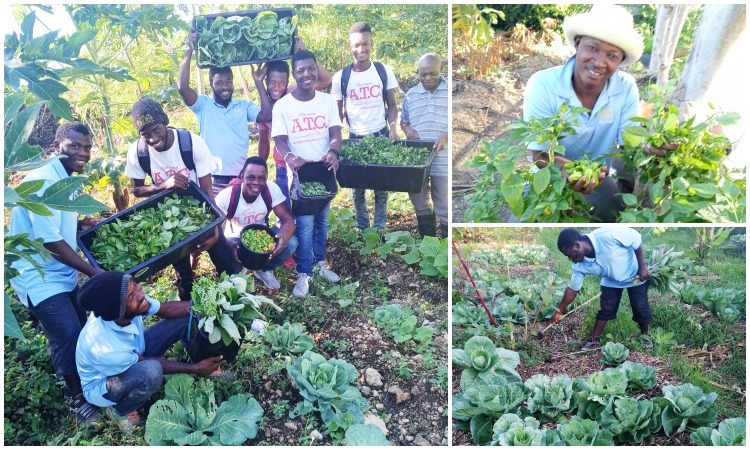
With newly adopted methods for variety selection, species diversity, and using grafted trees, Haitian families can increase food security and even start a sustainable business.
Our Latest Updates:
It all starts from a seed.
Once it grows, the Lord will give a harvest! From that harvest, mouths can be fed and the agricultural lessons learned can be shared to inspire more Haitians to grow their own gardens.
“From one seed comes many…”
We had one mulberry tree donated, and now we have 20 trees bearing fruit! These trees provide shade and stabilize the soil and the additional seedlings will provide “free” feed for our free-ranging chickens.
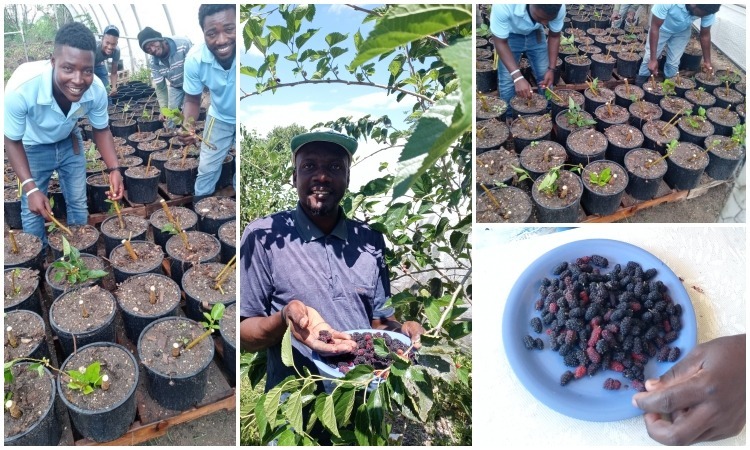
Mangos, papayas, avocados, bananas and many more have been planted at our Edible Plant Nursery, as well as our Love a Child Village. Coconut trees have also been grown, and additional plants have been given by Bobby and Sherry to other villages that need a reliable food source.
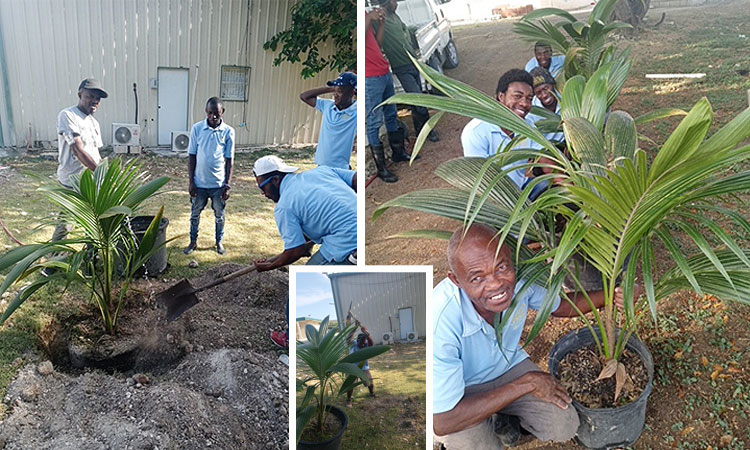
At the Agricultural Training Center, Haitians are taught how to grow better crops even in bad soil with their own compost. The results have been shown in the abundance of crops yielded, and also in the big smiles across their faces.
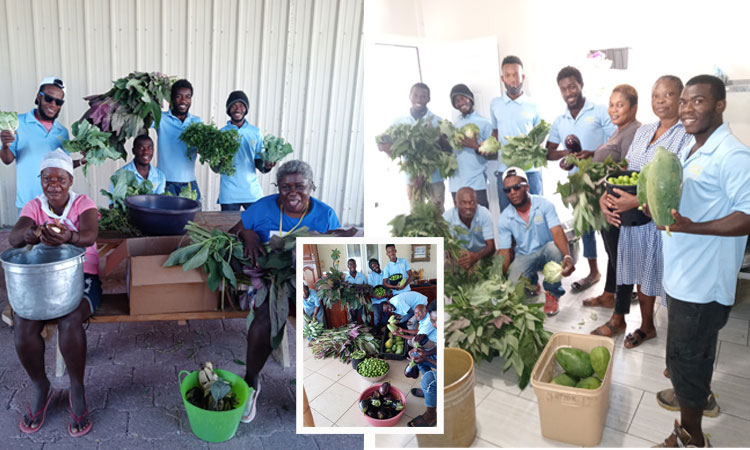
Hope Seeds provides us packets of special garden seeds that contain at least 10 different varieties of nutritious vegetables. To keep these newly planted seeds stable we have built, with the help of our donors, a “shade house.” This provides seed protection against the hot sun in order to grow food year-round to feed the five kitchens on campus.
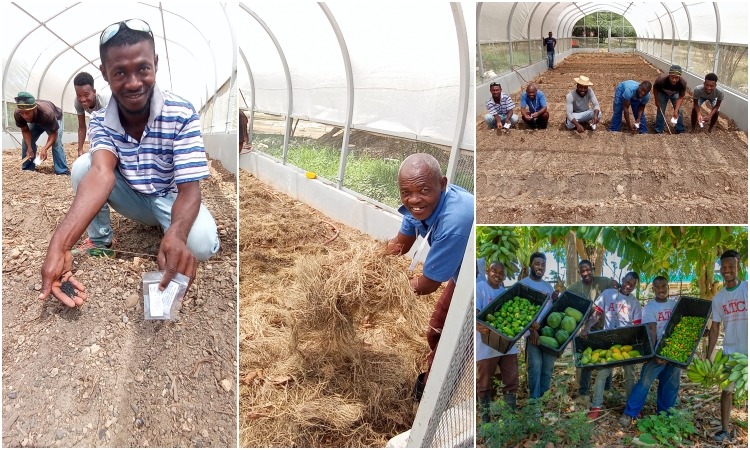
Teaching sustainable growing methods is very important to improve daily living conditions. Our three-week training course and a two-year expanded training on “Sustainable Gardening in Haiti” does just that. Students learn how to prepare raised garden beds to receive new seeds and starter plants, how to re-purpose old tires into container gardens, harvest varieties of vegetables, and more!
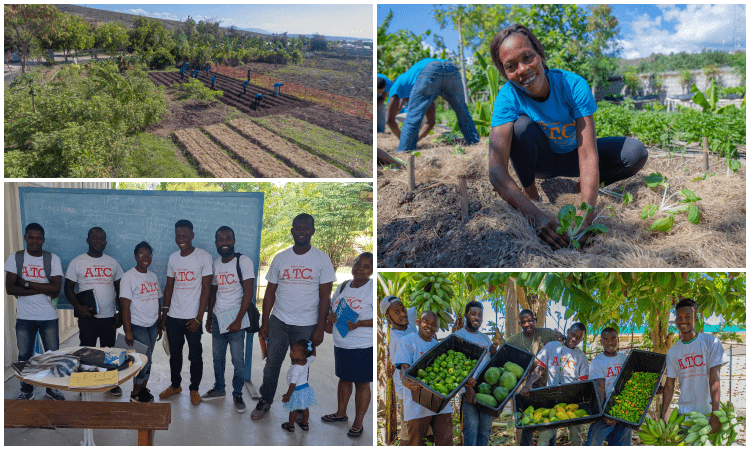
In March of 2021, we had eight students graduate from our three-week training course. They are from various parts of Haiti and took home gardening tools, seed packets, irrigation kits, and newfound hope that they can provide for themselves and their families. They now can take what they learned from our Edible Plant Nursery and start gardens within their own communities, and any extra crops yielded can be profited to further sustain themselves.
Growing “Food for Life”
9 years ago, when we were just starting our Agricultural Training Center (ATC) as part of our Sustainability Outreaches, we began the Edible Plant Nursery with one small avocado tree and a young breadfruit sapling. Now, look at the perpetual harvests from those plantings from just a few years ago!
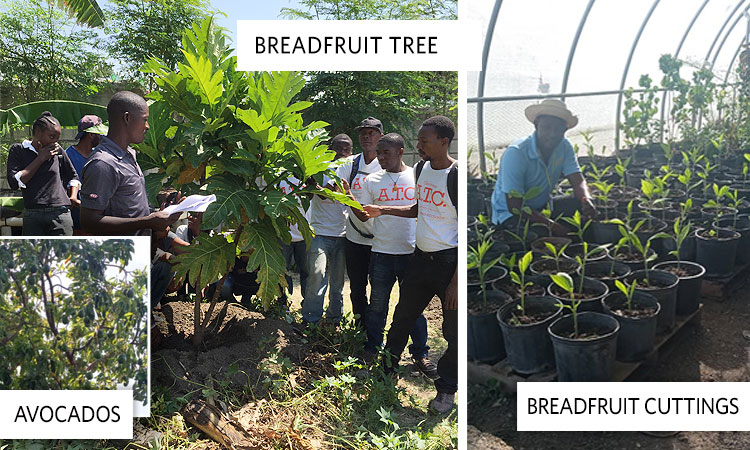
Everyone in Haiti seems to love both avocados (zaboka) and breadfruit (lam). Now our edible plant garden at the ATC is bearing many breadfruits, and the larger garden verge’ at Love A Child Village (where the orphanage, clinics, etc. are located) has this bountiful avocado tree.
Breadfruit can be used in almost any stage of its growth, often steamed, boiled, or fried like potatoes. Thank you to all of you who support our work. Your gifts are helping Haitians learn to help themselves.

